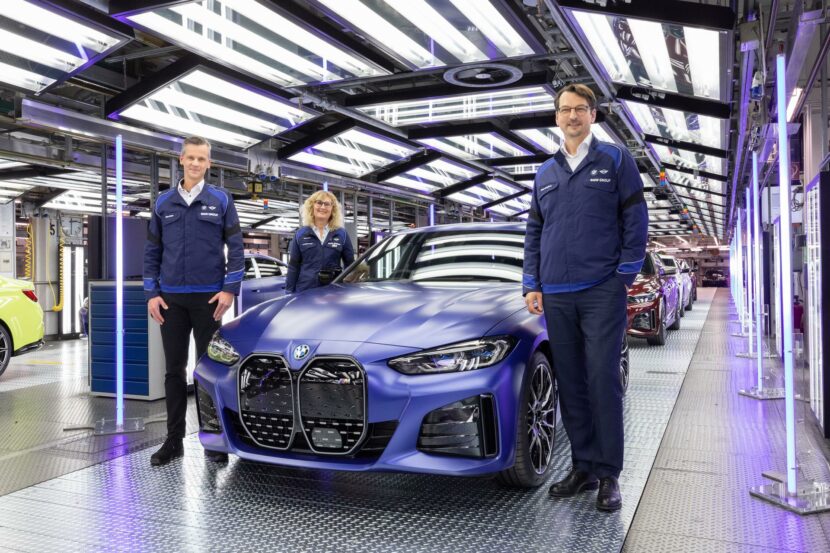BMW is in the midst of a major transformation. In 2025, the Munich-based automaker will begin production of their Neue Klasse cars. At an event in Munich, BMW highlighted for the media their plans around the re-invention of the plant. Part of the transformation is a substantial investment of 650 million euros to transform its Munich plant into a facility dedicated solely to the production of electric vehicles by the end of 2027.
This move marks a significant milestone for the automaker as it progresses towards the electric era. The initiative involves the construction of four new buildings, including a state-of-the-art vehicle assembly line and body shop. In tandem with this transition, BMW has relocated traditional engine manufacturing to the UK and Austria, with 1,200 employees undergoing retraining or being transferred to different locations.
Founded in 1922
The transition to electric vehicle production in 2027 signifies the conclusion of 75 years of internal combustion engine (ICE) car manufacturing in BMW’s hometown. The Munich plant was founded in 1922 and initially focused on motorcycle production until the relocation of car manufacturing from Eisenach in 1952. The BMW 501 is the first car produced in Munich that way. Nearly 10 years later, in 1961, the Munich plant begins one of its most extensive conversions to prepare for the production of the Neue Klasse which began in 1962. Three years later, BMW sold over 100,000 Neue Klasse vehicles.
First 100,000 Units Sold – BMW 02 Series
The debut of the BMW 02 Series in 1966 marked a significant milestone, firmly establishing BMW in the automotive sector. Three years later, the remaining motorcycle production was relocated to Berlin to create space and capacity for the growing demand for the 02 Series. The momentum continued in the 1970s with the introduction of the first 3 Series, which became BMW’s inaugural model to surpass a million units in sales.
Recognizing the need for ongoing improvements, BMW initiated the establishment of a pilot plant, referred to as “Plant 0,” in 1979. This facility served as the testing ground for every planned series production. In a pioneering move, BMW introduced its first Kuka industrial robot a decade later, by 1982, operating over 300 robots in the Munich and Dingolfing plants. This innovation allowed employees to shift to more highly qualified tasks while significantly increasing the daily production of vehicles. In 1985, BMW further enhanced its manufacturing efficiency with the introduction of “just-in-time” manufacturing practices, contributing to the company’s continued growth and success.
1,000 cars per day
At present, the facility is tasked with producing a range of vehicles, including the 3 Series (encompassing the Touring estate, M3, and plug-in hybrid 330e and 320e models) and the 4 Series Gran Coupe, featuring the high-seller electric i4. An interesting tidbit: every second BMW built in Plant Munich is an i4. Munich’s manufacturing output totals around 1000 cars per day.
Looking ahead, Plant Munich will enter a new phase with the heightened digitalization and integration of artificial intelligence (AI) through BMW’s ‘iFactory’ principle. What’s even more interesting is that for a period of two years, the Munich factory will produce in parallel the existing CLAR-based lineup and the new Neue Klasse electric sedan (likely to be called the BMW i3).
Milan Nedeljković, Member of the Board of Management of BMW AG, Production, highlighted the company’s ability to adapt while delivering sales records. “Last year alone, six all-electric models went into production. At the same time, we also set a production record, proving that we are simultaneously able to both deliver and shape the future in our production network.” BMW says that production of the new electric sedan will begin in September 2026 and additional variants will join within 24 months.

















































































